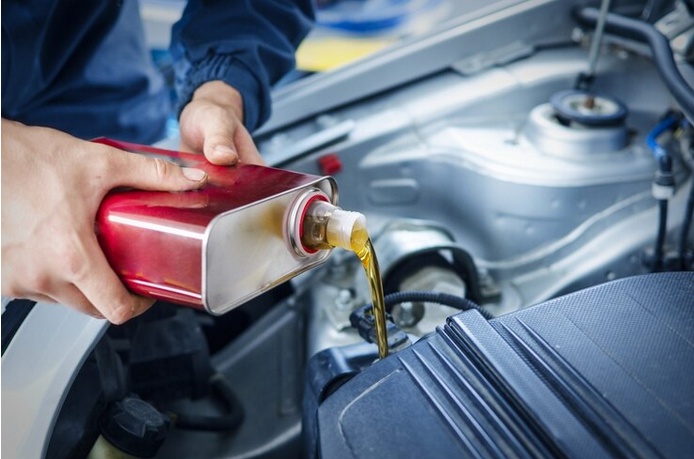Introduction:
Regular automotive oil changes are a fundamental aspect of vehicle maintenance, essential for ensuring the longevity, efficiency, and performance of your car's engine. Engine oil serves multiple critical functions, including lubricating moving parts, cooling engine components, and carrying away contaminants. Over time, oil degrades and loses its effectiveness, leading to increased friction, heat, and potential engine damage. In this comprehensive guide, we'll explore the importance of regular oil changes, examining the benefits they provide and offering insights into establishing an effective oil change schedule for your vehicle.
Understanding the Role of Engine Oil:
Engine oil plays a vital role in the proper functioning of your vehicle's engine, performing several key functions:
-
Lubrication: Engine oil forms a protective layer between moving parts, such as pistons, bearings, and crankshafts, reducing friction and wear. This lubricating action helps to prevent metal-to-metal contact and prolongs the lifespan of engine components.
-
Cooling: Engine oil absorbs heat generated by the combustion process and dissipates it throughout the engine, helping to maintain optimal operating temperatures. Proper cooling prevents engine components from overheating and ensures efficient performance.
-
Cleaning: Engine oil carries away dirt, debris, and combustion by-products, preventing them from accumulating and causing damage or blockages within the engine. The detergent additives present in modern engine oils help to suspend contaminants, keeping the engine clean and free from deposits.
-
Sealing: Engine oil forms a seal between the piston rings and cylinder walls, preventing combustion gases from escaping into the crankcase. This sealing action helps to maintain compression within the engine cylinders, optimizing power output and fuel efficiency.
Importance of Regular Oil Changes:
Regular oil changes are crucial for maintaining the health and performance of your vehicle's engine. Here are some key reasons why oil changes are essential:
-
Engine Protection: Fresh, clean oil provides optimal lubrication and protection to engine components, reducing friction and wear. Regular oil changes prevent premature engine wear and extend the lifespan of critical parts, such as pistons, bearings, and camshafts.
-
Improved Performance: Clean oil helps to maintain engine efficiency and performance by ensuring smooth operation and reducing friction-related power losses. Vehicles with regularly changed oil often experience better acceleration, smoother idling, and improved fuel economy.
-
Preventative Maintenance: Oil changes serve as a form of preventative maintenance, addressing potential issues before they escalate into major problems. By regularly inspecting the oil and filter, mechanics can detect early signs of engine wear, leaks, or contamination, allowing for timely repairs or adjustments.
-
Enhanced Fuel Efficiency: Properly lubricated engine components operate more efficiently, resulting in improved fuel economy. Fresh oil reduces internal friction, enabling the engine to run smoothly and consume less fuel during operation.
-
Environmental Benefits: Regular oil changes help to minimize harmful emissions and reduce environmental impact. Clean oil promotes efficient engine combustion, resulting in lower levels of pollutants, such as carbon monoxide and hydrocarbons, emitted into the atmosphere.
Establishing an Effective Oil Change Schedule:
The frequency of oil changes depends on various factors, including vehicle age, driving habits, and manufacturer recommendations. While older vehicles with conventional engines may require more frequent oil changes, newer vehicles equipped with advanced engine technologies and synthetic oils may have extended oil change intervals. Here are some guidelines for establishing an effective oil change schedule:
-
Refer to the Owner's Manual: The manufacturer's recommendations outlined in the vehicle's owner's manual serve as a primary guide for oil change intervals. Follow the specified mileage or time intervals provided by the manufacturer to ensure optimal engine performance and warranty compliance.
-
Consider Driving Conditions: Factors such as stop-and-go city driving, towing heavy loads, or frequent short trips can accelerate oil degradation and increase engine wear. Adjust your oil change frequency accordingly based on your typical driving patterns and environmental conditions.
-
Monitor Oil Quality: Regularly check the oil level and condition using the dipstick or digital oil monitoring system. Dark, gritty oil with a burnt smell indicates that it's time for an oil change, regardless of mileage. Consider scheduling more frequent oil changes if you notice signs of oil degradation or contamination.
-
Use High-Quality Oil and Filters: Invest in high-quality engine oil and filters recommended for your vehicle make and model. Synthetic oils offer superior performance and longevity compared to conventional oils, while premium oil filters help to trap more contaminants and maintain oil purity.
Conclusion:
Regular automotive oil change are essential for preserving the health, efficiency, and longevity of your vehicle's engine. By providing vital lubrication, cooling, cleaning, and sealing functions, fresh oil helps to protect engine components from wear, improve performance, and reduce emissions. Establishing an effective oil change schedule based on manufacturer recommendations, driving conditions, and oil quality ensures that your vehicle remains in optimal condition, maximizing reliability and fuel efficiency. Don't overlook the importance of regular oil changes – they're a small investment that pays significant dividends in the long run.


No comments yet